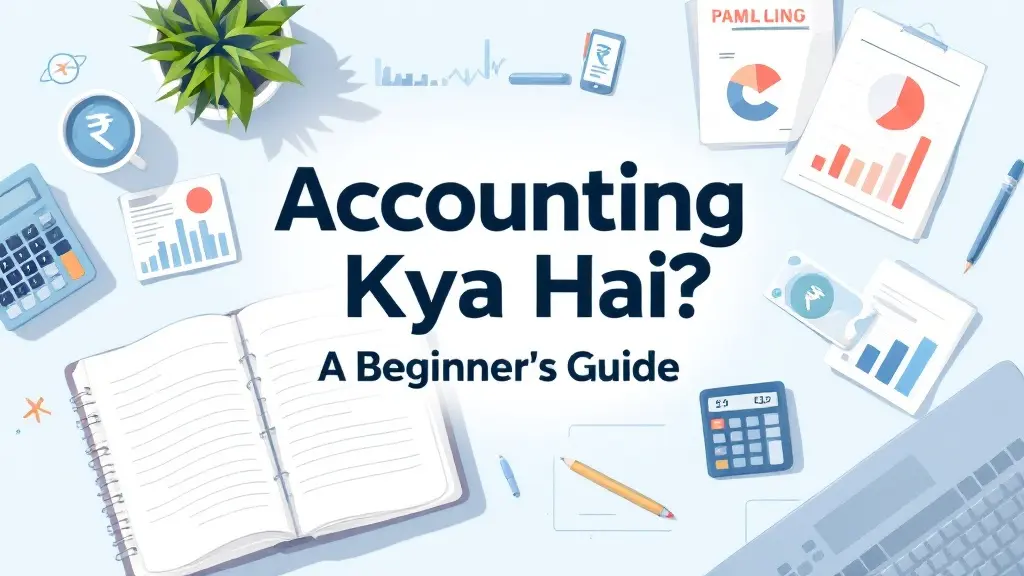CA Exam Pattern and Syllabus: A Comprehensive Guide for Aspirants
Table of Contents
Most Read
[fusion_dropcap class="fusion-content-tb-dropcap"]T[/fusion_dropcap]he Chartered Accountant (CA) exam is one of the most prestigious and challenging professional exams in India. Every year, thousands of students aspire to crack the exam and become successful Chartered Accountants, but many find themselves overwhelmed by the vast syllabus and intricate exam pattern.
If you’re planning to embark on the CA journey, it’s essential to understand the exam pattern and syllabus in-depth to plan your preparation effectively. This guide will provide you with a detailed breakdown of the CA exam pattern, syllabus, and some helpful tips to succeed.
Overview of the CA Exam
The CA exams are conducted by the Institute of Chartered Accountants of India (ICAI) and are divided into three levels:
- CA Foundation
- CA Intermediate
- CA Final
Each level has its own exam structure, syllabus, and eligibility criteria. Let’s dive deeper into each stage to give you a clear understanding.
1. CA Foundation Exam
The CA Foundation exam is the entry-level exam that tests the fundamental knowledge of accounting and related subjects. It is designed for students who are either after their 12th standard or those who are graduates in non-commerce streams.
CA Foundation Exam Pattern
The CA Foundation consists of four papers, which are:
- Paper 1: Principles and Practice of Accounting (100 marks)
- Paper 2: Business Laws, Ethics, and Communication (100 marks)
- Paper 3: Business Mathematics, Logical Reasoning, and Statistics (100 marks)
- Paper 4: Business Economics and Business and Commercial Knowledge (100 marks)
Marking Scheme
- Each paper is of 100 marks.
- The exam is objective in nature with negative marking in multiple-choice questions (MCQs).
- The duration for each paper is 3 hours.
CA Foundation Syllabus
- Principles and Practice of Accounting
- Accounting fundamentals, journal entries, subsidiary books, cash flow statement, and accounting for special transactions.
- Business Laws, Ethics, and Communication
- Contract Act, Sale of Goods Act, Indian Partnership Act, and companies act.
- Business ethics and communication principles.
- Business Mathematics, Logical Reasoning, and Statistics
- Basic algebra, linear equations, matrices, and commercial mathematics.
- Logical reasoning and basic statistics.
- Business Economics and Business and Commercial Knowledge
- Microeconomics, macroeconomics, business and commercial laws.
- Current business and economic environment.
2. CA Intermediate Exam
After successfully clearing the CA Foundation exam, candidates can proceed to the CA Intermediate level. This exam is more advanced and delves deeper into accounting, taxation, auditing, and other critical aspects of business finance.
CA Intermediate Exam Pattern
The CA Intermediate exam consists of two groups, each with four papers:
- Group I:
- Paper 1: Accounting (100 marks)
- Paper 2: Corporate and Other Laws (100 marks)
- Paper 3: Cost and Management Accounting (100 marks)
- Paper 4: Taxation (100 marks)
- Group II:
- Paper 5: Advanced Accounting (100 marks)
- Paper 6: Auditing and Assurance (100 marks)
- Paper 7: Enterprise Information Systems and Strategic Management (100 marks)
- Paper 8: Financial Management and Economics for Finance (100 marks)
Marking Scheme
- Each paper is of 100 marks.
- The duration for each paper is 3 hours.
- The exam is both subjective and objective, with 30% of the questions in the MCQ format.
CA Intermediate Syllabus
- Accounting and Advanced Accounting
- Accounting standards, financial statements, partnerships, and mergers.
- Accounting for shares, debentures, and business combinations.
- Corporate and Other Laws
- Corporate laws, legal aspects of business, and business structures.
- Negotiable instruments, partnership act, and intellectual property rights.
- Cost and Management Accounting
- Cost concepts, cost-volume-profit analysis, budgeting, and performance evaluation.
- Management accounting tools like variance analysis and cost control techniques.
- Taxation
- Income tax, GST, customs, and international taxation.
- Indirect tax laws, computation of income, and tax planning.
- Auditing and Assurance
- Principles of auditing, audit planning, internal controls, and audit procedures.
- Professional ethics and audit reports.
- Enterprise Information Systems and Strategic Management
- Information systems, IT in business, and strategic management concepts.
- Financial Management and Economics for Finance
- Financial planning, capital structure, and investment decisions.
- Basic economics, including demand-supply analysis, inflation, and monetary policy.
3. CA Final Exam
The CA Final exam is the final hurdle before becoming a Chartered Accountant. It is designed for candidates who have completed the CA Intermediate level and have undergone practical training through articleship.
CA Final Exam Pattern
The CA Final exam consists of two groups, each with four papers:
- Group I:
- Paper 1: Financial Reporting (100 marks)
- Paper 2: Strategic Financial Management (100 marks)
- Paper 3: Advanced Auditing and Professional Ethics (100 marks)
- Paper 4: Corporate and Economic Laws (100 marks)
- Group II:
- Paper 5: Strategic Cost Management and Performance Evaluation (100 marks)
- Paper 6: Information Systems Control and Audit (100 marks)
- Paper 7: Direct Tax Laws and International Taxation (100 marks)
- Paper 8: Indirect Tax Laws (100 marks)
Marking Scheme
- Each paper is of 100 marks.
- The duration for each paper is 3 hours.
- The exam is subjective, and the papers are more focused on application-based questions.
CA Final Syllabus
- Financial Reporting
- IFRS, financial statements, accounting for mergers, and consolidation.
- Advanced financial accounting and reporting standards.
- Strategic Financial Management
- Investment decisions, portfolio management, and financial analysis.
- Risk management, working capital management, and mergers and acquisitions.
- Advanced Auditing and Professional Ethics
- Advanced auditing techniques, internal audits, and audit reports.
- Professional ethics, code of conduct, and legal compliance.
- Corporate and Economic Laws
- Corporate governance, mergers and acquisitions, and insolvency laws.
- Economic regulations, international trade, and competition laws.
- Strategic Cost Management and Performance Evaluation
- Cost management techniques, budgeting, and variance analysis.
- Performance evaluation and strategic cost management.
- Information Systems Control and Audit
- IT systems in auditing, e-governance, and cyber laws.
- Control mechanisms and audit tools in information systems.
- Direct Tax Laws and International Taxation
- Income tax laws, tax planning, and international taxation regulations.
- GST, customs, and indirect taxes.
- Indirect Tax Laws
- GST, customs duties, and other indirect taxes.
- Tax compliance and planning strategies.
Tips for CA Exam Preparation
- Time Management: Allocate specific time slots for each subject and stick to your schedule.
- Regular Revision: Since the syllabus is vast, it’s essential to revise regularly and keep track of important topics.
- Focus on Conceptual Clarity: Rather than rote learning, focus on understanding the core concepts.
- Practice Past Papers: Solve previous years’ question papers to get familiar with the exam pattern.
- Stay Updated: For the law-related papers, always refer to the latest amendments and updates.
Conclusion
The CA exam is a rigorous and challenging journey, but with the right preparation, it’s absolutely achievable. By understanding the exam pattern and syllabus for each level, you can make your study plan more effective and manageable. Whether you’re just starting with the CA Foundation or preparing for the CA Final, remember that consistency, dedication, and strategic planning are key to success.
Stay focused, keep practicing, and believe in yourself. The road to becoming a Chartered Accountant might be tough, but the rewards at the end are worth the effort. Good luck!
Visit Our Website : Accounting24.in









